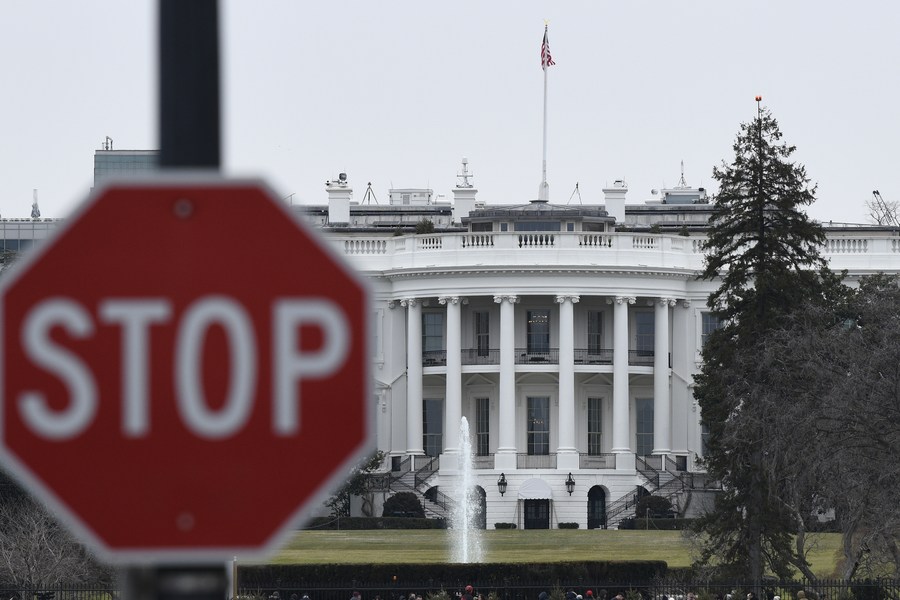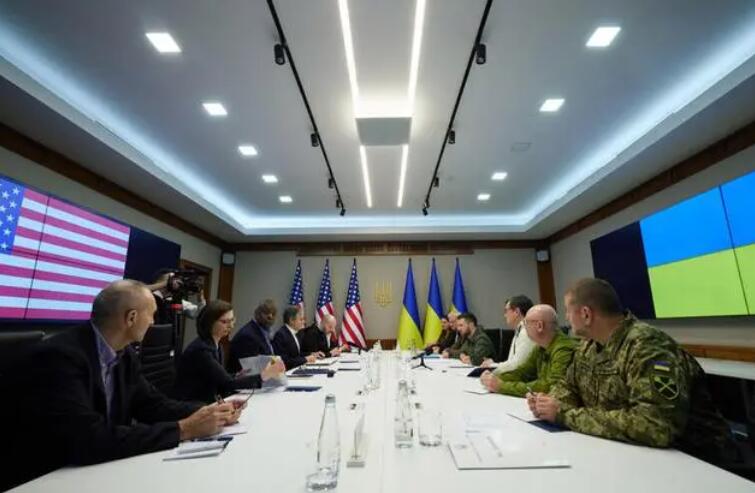The US has announced it will send controversial weapons to Ukraine as part of more than $1bn (£800m) in military and humanitarian aid.
Russia condemned the move to equip US Abrams tanks with shells strong enough to pierce conventional tank armour.
They are made of depleted uranium - a by-product of uranium enrichment stripped of most radioactive material.
Overnight, suspected Ukrainian drone attacks were reported on the Russian city of Rostov-on-Don and near Moscow.
Unconfirmed video showed what appeared to be a blast in central Rostov where, according to Governor Vasily Golubev, one person was lightly injured and several cars were damaged.
Moscow Mayor Sergei Sobyanin said a drone that targeted the town of Ramenskoye had also been shot down and no damage reported.
What are depleted uranium shells and are they harmful?
What weapons are being supplied to Ukraine?
The announcement of a new security package for Ukraine came during top US diplomat Antony Blinken's visit to Kyiv, prompting an angry Russian response.
The 120mm uranium tank rounds - included in $175m of US military equipment for Ukraine - are for M1 Abrams tanks due to be delivered to Ukraine later this year.
The rounds are made of depleted uranium, a waste product from the process of enriching naturally occurring uranium for nuclear fuel or weapons. It cannot generate a nuclear reaction and is considered "considerably less radioactive than natural uranium", according to the International Atomic Energy Agency.
Depleted uranium can be used to reinforce armour-plating on tanks but is favoured for weapons because of its extreme density and ability to pierce conventional tank armour.
These types of shells sharpen on impact, which further increases their ability to bore through armour, and they ignite after contact.
Russia also reacted angrily when the UK announced in March it was sending depleted uranium shells to Ukraine for its Challenger 2 tanks.
When President Vladimir Putin described the weapons as having a "nuclear component", the UK Ministry of Defence said it had used depleted uranium in its armour-piercing shells for decades and accused Moscow of deliberately spreading misinformation.
The UN Scientific Committee on the Effects of Atomic Radiation has found no significant poisoning is caused by exposure to depleted uranium but a 2022 UN Environment Programme (UNEP) report said it was concerned about potential health issues arising from its use in Ukraine.
"The chemical toxicity of depleted uranium is considered a more significant issue than the possible impacts of its radioactivity," it said.
The US decision is a U-turn from March when the Pentagon said it would not be sending any depleted uranium munitions to Ukraine.
A Department of Defense official told the Politico news website the US had now decided to send the weapons because they were thought to be the best way of arming Abrams tanks in Ukraine.
National Security Council spokesman John Kirby has described them as "a commonplace type of munition".





Comment (0)
{{ comment.userNickname }}
{{ comment.createTime }}
{{ comment.content }}
Reply {{ comment.showChildren ? i18n.retract : i18n.expand }} {{ comment.totalChild }} Reply
{{ child.userNickname || i18n.anonymous }} {{ child?.relationUserNickname ? ` -> ${child.relationUserNickname}` : '' }}
{{ child.createTime }}
{{ child.content }}
Reply